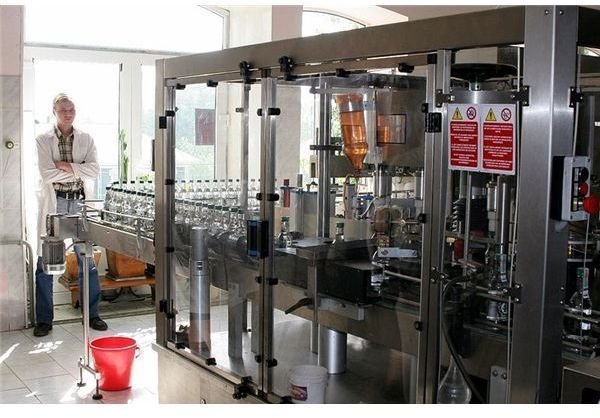Corporate Environmental Responsibility for Distillery Industries and Considerations for Environmental Regulations
The CARE Act of 2010 and Environmental Regulations
The new bill being introduced in Congress is the Comprehensive Alcohol Regulatory Effectiveness (CARE) Act of 2010.
This new act could transform mere consciousness about corporate environmental responsibility for distillery in the US, to actual performance as legal obligations. Compliance to environmental rules has become a requisite among other countries which can create trade restrictions. We could then surmise that the CARE Act will include recognition of standards of compliance for environmental regulations, to achieve global competitiveness.
In its 1998 report, the US Environmental Protection Agency’s findings disclosed that 74 percent of companies engaged in different industries, did not report to the Securities & Exchange Commission (SEC), the environmentally-related enforcement proceedings of the EPA. Accordingly, the violations could result to liabilities to the government in terms of monetary sanctions.
The Comprehensive Alcohol Regulatory Effectiveness (CARE) Act of 2010 will establish the fact that alcohol as traded by distillery companies, should not be treated as a regular consumer product but should be regulated by US states in accordance with existing federal laws.
Thus, the environmental issues featured in the following aspects are probable bases for mandatory corporate environmental regulations as responsibilities of distillery companies. These are all in connection with the manner by which distillery processes are operated.
What are the Environmental Responsibilities of Corporate Distilleries?
Both local and global trading created significant impacts in the environment, up to the point where nations’ present state of natural resources has become widely diminished or degraded. In order to solve these environmental problems on a global scale, existing trade restrictions between countries are being imposed to achieve each nation’s environmental rehabilitation goals.

Elimination of Potential Fire Hazards –
The volatility of grain dusts especially if stored in great concentrations present threats of dust fire and possible explosions. Grains tend to turn damp if kept in storage for a prolonged period, and will produce heat that poses fire hazards.
The distillery company should see to it that preventive measures are in place and are observed. An example of a preventive measure is rotating the grain storage by transferring contents from bin to bin or to avoid prolonged storage by adopting the “just-in-time” grain delivery policy.
The Alcohol and Tobacco Tax and Trade Bureau mandates that plants where beer, wines or liquors are produced should be located separately from any shed, yard, enclosures particularly dwellings, or not in any way connected or built–in to a board, vessel or boat or where any other business is conducted.
In addition, it will be the responsibility of the distillery company to construct or install tank vents, flame retardants, foaming devices and or other safety devices to prevent the spread of fire in any eventuality.
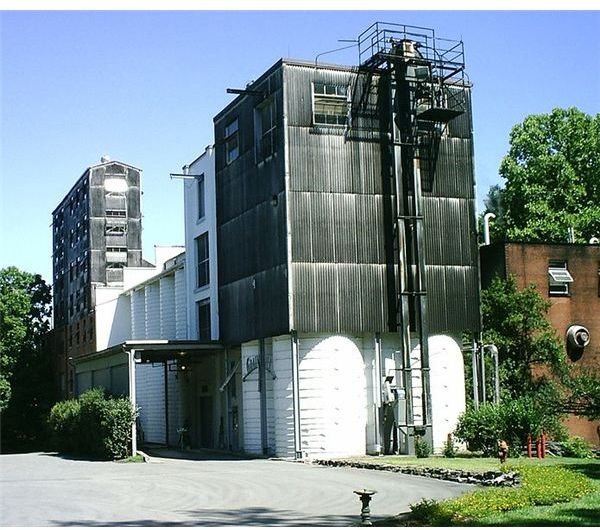
Explore Current Technologies and Potential Applications for Pollution Prevention and Waste Management
The unpleasant odor of distillery wastewater contains the unwanted residual liquid known as distillery spent wash, as waste product generated during alcohol production. This type of waste is known for its capacity to increase incidences of water and soil pollution. There are new technologies available to distillery companies, as bioremediation processes to be used as treatment of this distillery spent wash, in order to achieve zero waste in the near future.
Implement Pollution Prevention Alternatives as a method for waste management. Distilled grains can be repurposed as ingredients for livestock feed as it contains high levels of nutrients like protein. Carbon dioxide released during fermentation can be collected and processed for use for flash meat freezing processes and in carbonated beverages. (See Examples of Bioremediation Techniques in separate section)
Minimize Vapors and Gases in the Form of Volatile Organic Compounds to Tolerable Level
The release of refrigerant gases during fermentation processes present toxic risks and additional potential fire and health hazards. Inhalation of asphyxiating alcohol vapors and carbon dioxide released during fermentation processes, particularly during transport and decantation in reservoir are considered as health hazards. These are particularly true if such activities are performed in enclosed and confined spaces where ventilation is considered inadequate.
It would be best if the Best Available Control Technology (BACT) pollution equipment, is added to control pollution or modify the production process. Examples of these technologies include implementing fuel cleaning treatment, or designs, work methodologies or operational standard or equipment that can reduce emissions. (See Examples of Bioremediation Techniques in separate section).
Examples of Bioremediation Techniques include:
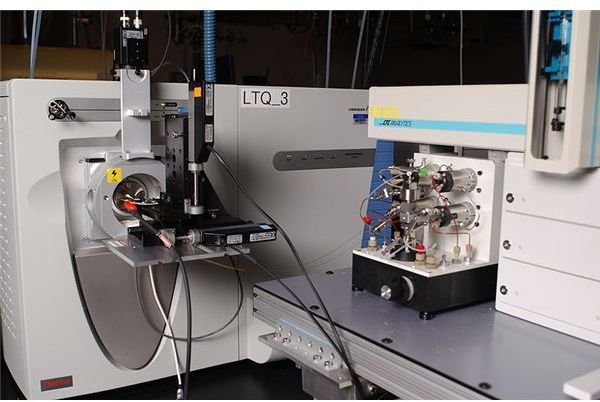
-
Anaerobic absorption of distillery spent wash using different support materials like coconut coir, charcoal and nylon fibers. Anaerobic treatment is widely recommended for molasses-based distilleries as it achieves 80 percent BOD removal and recovery of energy in biogas form.
-
Ozonation at various doses for anaerobically treated spent wash, can further reduce organic carbon and increase demand for biochemical oxygen.
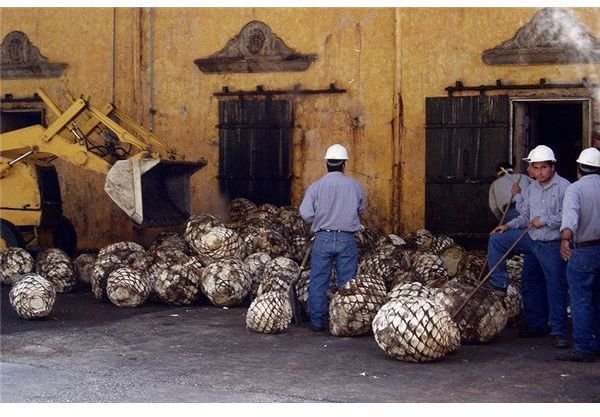
Ensuring Workers’ Safety and Minimizing Risks against Potential Health Hazards
Workers directly handling distillation procedures should be provided with respirators and policies requiring the use of said respirators should also be instituted.
Ensure proper training and supervision of workers in-charge of handling hazardous materials-
Handling of hazardous materials like varsol (mineral spirit), caustic acids and other solvents as well as cleaning materials should be performed only by those who have proper training and should be used in the entire facility under proper supervision.
Part of the workers’ training is the familiarization with the Material Data Safety Sheets furnished by hazmat suppliers in which information pertaining to hazardous contents, health hazards, first aid and emergency actions, are contained.
Installation of first aid stations, eye-wash stations and showers are necessary as means to minimize extent of injury in case of accidental exposure to hazardous chemicals.
Employ only qualified personnel to operate forklifts and transport equipment within and outside of plant facilities
Institution of company policies and guidelines to specifically address the duties and responsibilities of employees in charge of handling, packaging, storing and delivery of finished product.
Conduct periodic reviews and inspection of health, safety and anti-hazard devices, equipment, tools and guidelines.
These are only examples of the responsibilities of distillery companies and are different from the so-called corporate social responsibilities. The latter pertains to responsibilities in selling, marketing and advertising of alcoholic beverages. Hence, the justification that industries engaged in alcohol beverage manufacture are quite different from those engaged in producing and handling ordinary consumer products.
Corporate Social and Environmental Responsibility in the US vs. European & Other Countries
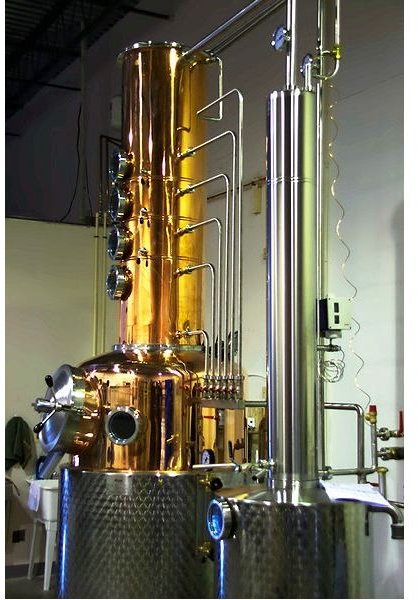
Corporate Social Responsibility (CSR) as defined means the dedicated commitment of a company to conduct its business by taking into consideration not only the ethical aspects of commercial trade but also the industry’s contribution to improve the quality of life of its workforce, the community it serves and the society in its entirety.
However, different nations have different perceptions on how this definition is adopted. According to business management experts, most US corporation’s goals of “giving back to society to improve life” are more on giving in the “philanthropic sense”, and not so much on major environmental commitments.
Countries operating under the European Commission are governed by their CSR definition of “voluntarily contributing to create a better society and a cleaner environment.” Industries who are known to be active in the development and application of environmental business value metrics, are given broad government support to institutional and banking investors. (Reference: CSR Europe 2003.)
The Comprehensive Alcohol Regulatory Effectiveness (CARE) Act of 2010, is widely supported by corporations and operators of industries engaged in the manufacture of alcohol beverages, perhaps in their bid to be more globally competitive.
It is also possible that with this new enactment, the consciousness for corporate environmental responsibility among distillery and wineries will likewise heighten, in order to promote the safety and health of their workers as well as benefit the community and the entire society.
Reference Materials and Image Credit Section
Reference Materials
- https://www.ciesin.org/docs/008-067/chpt4.html
- https://books.google.com.ph/books?id=nDhpLa1rl44C&pg=PT26&lpg=PT26&dq=environmental+responsibilities+of+distilled+spirits+industry&source=bl&ots=zKZmVXzBiW&sig=1unTKhnhjJStc2PL8kifk2mKToY&hl=en&ei=YZyjTIb2BIG3cJOz8agI&sa=X&oi=book_result&ct=result&resnum=8&ved=0CD4Q6AEwBzgK#v=onepage&q&f=false
- https://www.ttb.gov/spirits/regs/19_131.htm
- https://www.scribd.com/doc/33238427/P-17-Cichelli-LCA-and-Carbon-Footprint
- https://www.scribd.com/doc/33238427/P-17-Cichelli-LCA-and-Carbon-Footprint
Image Credit: All images are courtesy of Wikimedia Commons
